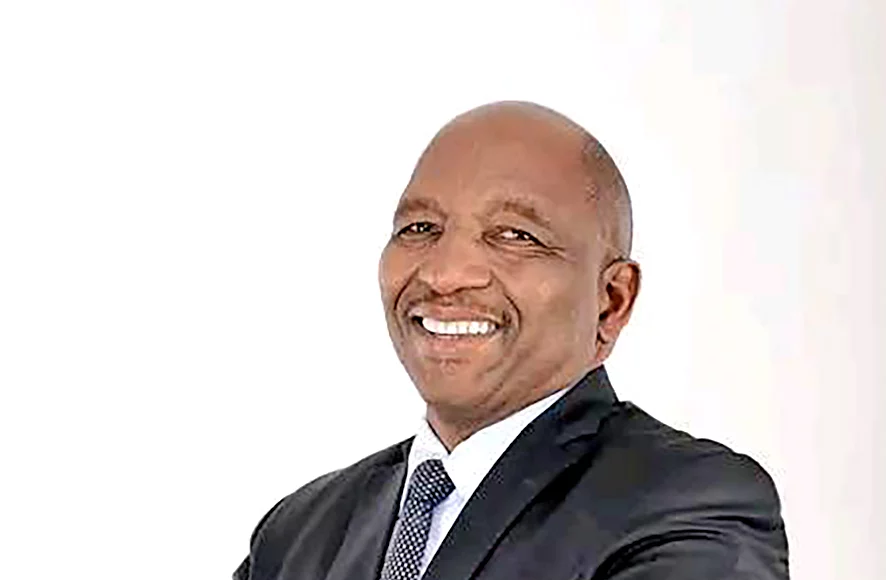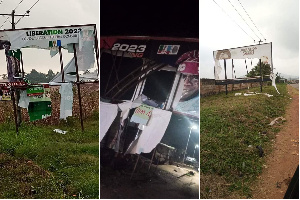News Africa
Lesotho Prime Minister Matekane must deliver on promise to ensure ‘realization of human rights’

Lesotho Prime Minister Sam Matekane must move swiftly to honour his promise to ensure the “realization of human rights”, including tackling entrenched impunity for violations such as torture and killings by members of the security forces, Amnesty International said in its report.
In a briefing to mark almost seven months since Matekane took office, Amnesty International documented human rights violations committed by police officers, ranging from unlawful killings, torture, and cruel, inhuman and degrading treatment of persons in detention. The human rights violations took place in the past five years. Amnesty International also documented cases where police authorities either neglected or refused to investigate allegations of torture, ill-treatment, and deaths in custody.
In the briefing, “Turn the chapter: Human Rights Agenda for the New Government of Lesotho”, the organization called on Matekane and his government to ensure that all allegations of violations by the Lesotho Mounted Police Service (LMPS) are promptly, thoroughly, independently, transparently, and effectively investigated.
“During the previous administration, we saw a spike in the number of human rights violations in Lesotho, including torture and other ill-treatment and deaths of detained persons in police custody under mysterious circumstances,” said Tigere Chagutah, Amnesty International’s Interim Deputy Director for East and Southern Africa.
“Prime Minister Matekane and his government must act swiftly to ensure accountability for these past human rights violations in order to build a culture of accountability and the rule of law going forward. Justice delayed is justice denied. Time is not on his side.
During his inauguration as prime minister on 28 October, Matekane vowed to undertake reforms to prevent and combat corruption, and make public service transparent, accountable and effective. He also made a commitment to develop and implement a crime fighting strategy within his first 15 days in office.
Since then, there has been a worrying rise in gun violence and targeted killings in the country. Following the shooting and killing of local radio journalist, Ralikonelo Joki on 14 May, the government implemented a nationwide curfew between 10:00 pm and 4:00 am local time on 16 May.
Killings and torture and other ill-treatment by the police. The briefing reveals that the authorities are yet to hold anyone accountable for the killing of Kapano Francis Mokutoane, a 27-year-old student at the National University of Lesotho, on 16 June 2022. Mokutoane died following a shooting by members of the Lesotho Mounted Police Service on campus in Roma during student protests against cuts to their allowance. The circumstances around his death suggested that it was an unlawful killing.
In January 2022, human rights lawyer Napo Mafaesa was tortured and severely beaten by police after he was arrested by the LMPS and accused of concealing a gun belonging to a client, a claim he denies. The alleged torture took place at Hamabote police station where he said police tried to force him to confess to the crime.
In another case of torture, a 46-year-old woman, Mateboho Matekane, from Ha Pita in Maseru, was subjected to torture at Lithoteng police station in November 2021 by three police officers after being accused of stealing money from a community savings club, an accusation she denied.
Mateboho Matekane told Amnesty International of her torture ordeal at the hands of the police, which included severe physical beatings by the security forces. During a meeting with Amnesty International in July 2022, National Police Commissioner Holomo Molibeli did not deny allegations of torture in the police service, but attributed these violations to “rogue elements” within police ranks.
Police are now facing civil actions for the deaths in custody of two men in Hlotse. Timeletso Sekhonyana, aged 28, and Lethusang Mongali, aged 33, died at the Hlotse police holding cells on 14 January 2019. According to their post-mortem reports, which were reviewed by Amnesty International, their bodies bore signs of physical assault which led to cardiorespiratory failure, resulting in their deaths. Legal documents seen by Amnesty International show that police are being sued by Sekhonyana’s family for M3,000,000.00 (about $164,000) over his death.
Amnesty International is calling for the perpetrators of these violations to be brought to justice in fair trials, and for victims to be provided with access to justice and effective remedies. “The government must immediately take effective measures to respect human rights. The Prime Minister and his government must recommit to his plan to prioritize human rights and ensuring accountability for violations,” said Tigere Chagutah. “Prime Minister Matekane must seize this chance to rewrite Lesotho’s human rights history.”
Lesotho is poor in natural resources. Economically the most important resource is water. Much of the estimated 2.1 million population engages in subsistence farming. Lesotho, officially the Kingdom of Lesotho, is a country landlocked as an enclave in South Africa. It is situated in the Maloti Mountains and contains the highest mountains in Southern Africa
Source: Thepressradio.com|Kestér Kenn Klomegâh





